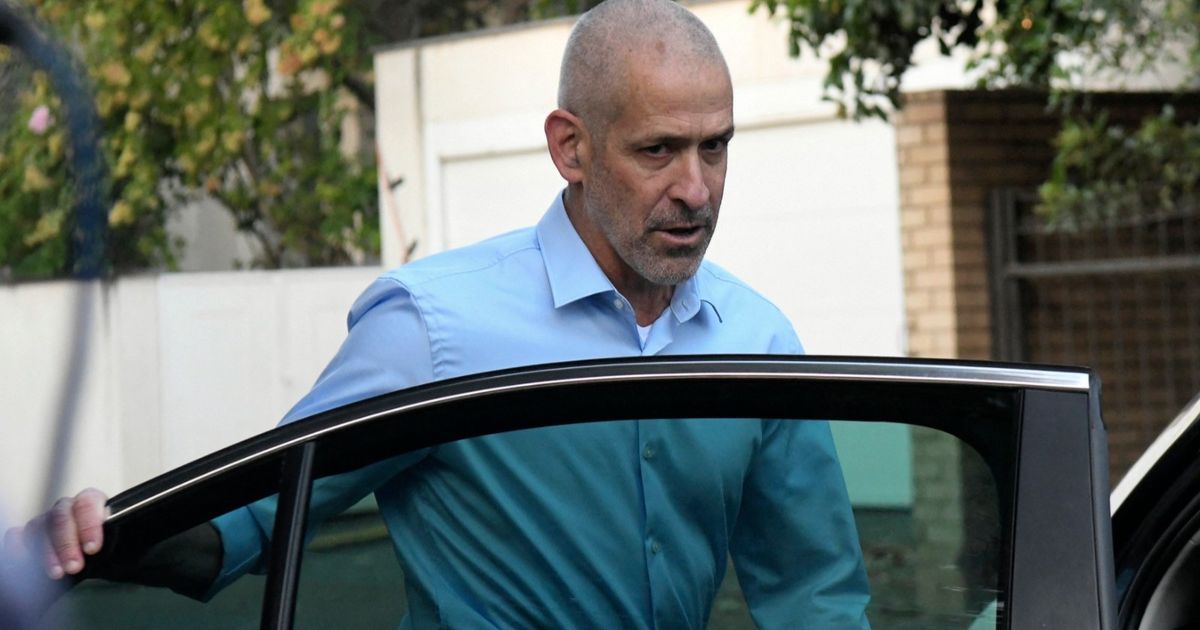The head of the Israeli Internal Security Service (Shin Bet), Ronen Bar, in a recording broadcast by the Israeli public broadcaster “Radio Kan” on Sunday, threatened the leaders of the Palestinian “Hamas” movement in Qatar, Turkey and Lebanon, to “persecute even if it takes years,” while the movement responded by saying “These threats do not scare any of Hamas’s leaders.”
“The government has set its goal of eliminating (Hamas), and we are determined to do that, and this is our Munich (operation),” Barr said in a recording whose time and place were not clear.
By mentioning Munich, Bar was referring to Israel’s response to the death of 11 members of the Israeli Olympic team in 1972 when gunmen from the Palestinian Black September organization launched an attack during the Munich Olympics. Israel responded by carrying out a targeted assassination campaign against activists and members of the organization over several years, and in several countries.
Ronen Bar added that he would pursue “all Hamas leaders everywhere, in the Gaza Strip, the West Bank, Lebanon, Turkey or Qatar,” pointing out that this “will take a few years,” according to what was reported by the newspaper “The Times of IsraelAbout registration.
Barr acknowledged the intelligence service’s “failure” in its mission before the attack launched by Hamas on October 7, but said: “The intelligence service is now moving in an upward direction, and it has learned from its lesson and from the failures of that day.”
This was not the first threat of this kind made by an Israeli official, as Prime Minister Benjamin Netanyahu had previously announced, last November, that he had asked the Mossad intelligence service to work against Hamas leaders “anywhere they are located around the world.”
Israeli Defense Minister Yoav Galant also said in a press conference last week that the movement’s leaders are “living on borrowed time,” indicating that the Mossad will pursue the leaders of the armed group anywhere in the world.
Hamas: Israeli threats do not scare us
For his part, the media advisor to the head of the Hamas Political Bureau, Taher Al-Nunu, responded to Barr’s statements and said, “The Israeli threats to target Hamas leaders at home and abroad do not frighten any of the movement’s leaders, and reflect the predicament that Israel is experiencing.”
Al-Nono added in a statement that these threats represent “a flagrant violation of the sovereignty of the countries mentioned by the enemy leaders and a direct violation of their security, which requires pursuing the enemy and holding him accountable for his arrogance and arrogance.”
He pointed out that these threats reflect “the political and field impasse that the enemy is experiencing thanks to the steadfastness and valiant resistance of our heroic people.”
A number of Hamas leaders live between Lebanon, Turkey, and Qatar, which hosts the movement’s political bureau led by Ismail Haniyeh. Doha also plays the role of mediator between the movement and Israeli officials, in order to return to the humanitarian truce in Gaza and release more prisoners.
In this context, Qatar’s ambassador to Washington, Sheikh Meshal bin Hamad Al Thani, said at the end of last October that his country was being subjected to a misleading campaign regarding its role as a peace mediator in the ongoing war in the Gaza Strip, noting that the opening of a political office for Hamas in Doha was at the request of From Washington.
The Qatari ambassador added in an article in the Wall Street Journal: “The Hamas political office was opened in Qatar in 2012 after a request from Washington to establish indirect lines of communication with Hamas. The office was often used in mediation efforts, which helped calm conflicts in Israel.” and the Palestinian territories.”
However, Deputy Director of the Strategic Department of the Israeli Ministry of Foreign Affairs, Joshua Zarka, indicated that “Israel will settle its accounts with Qatar, after it ends its role as a mediator in the prisoner talks” with the “Hamas” movement, adding, last Wednesday, that “Qatar played a bad role in Everything related to hosting Hamas members and legitimizing the movement’s activities.”
Earlier, the Washington Post reported that the United States and Qatar “agreed to reconsider” Doha’s connection with the Hamas movement after resolving the prisoner crisis, citing 4 diplomats familiar with the discussions.
Disagreement with Türkiye
Unlike most of its Western allies, NATO member Turkey does not consider Hamas a terrorist group, and hosts some members of the movement.
Israeli Foreign Minister Eli Cohen previously sent a message to Turkish President Recep Tayyip Erdogan via a post on the “Israel’s security, and in order to create a better future for the residents of the region.”
This came in response to the Turkish President’s rejection, on Saturday, of US calls to sever ties with Hamas in light of the war between it and Israel in the Gaza Strip, explaining that “Washington realizes that Ankara, unlike the United States, does not consider Hamas a terrorist organization,” adding: “Hamas is a reality in Palestine. It is a political party there. It ran in the elections as a political party and won.”
During a visit to Turkey this week, Brian Nelson, Undersecretary of the US Treasury for Terrorism and Financial Intelligence, expressed Washington’s “deep” concern about Ankara’s relations with Hamas.
Nelson confirmed that the United States had not monitored any transfer of funds through Turkey to the Palestinian movement since the beginning of the war between Israel and Hamas on October 7, but he pointed out that Ankara had previously helped Hamas receive funding, and called on it to take strict measures. Against possible future transfers of funds.
The United States, Israel’s closest ally, imposed sanctions on several Turkish entities and individuals as part of its efforts to limit Hamas’ financing, following the movement’s attack on Israel on October 7.
#Shin #Bet #pledges #pursue #Hamas #leaders #Qatar #Turkey #Lebanon
2023-12-03 20:49:26


:quality(85)/cloudfront-us-east-1.images.arcpublishing.com/infobae/L2KPXVZ3HFFBZOG3QGZUREQISY.jpg)